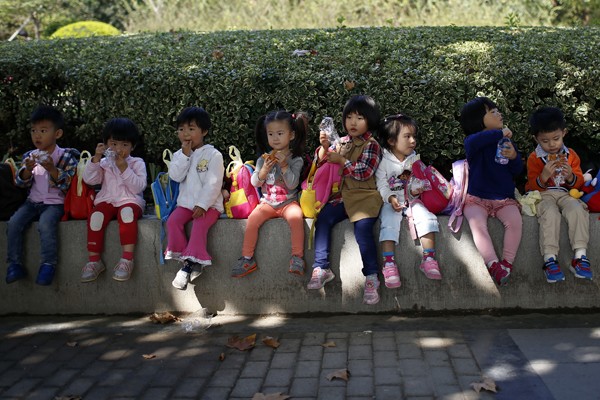Violence against children takes place around the world, China not excluded. To combat such gruesome cases, attitudes toward disciplining of children should be changed.
People have been in an uproar as a child abuse case went viral lately, wherein a nine-year-old boy in Nanjing received heavy abuse from his adoptive mother. The mother went against the stereotypes of abusers--she is well educated, puzzling many.
Pictures of bruises marking the young boy's body raised people's attention on the issue of domestic violence and how it should be responded to. Follow-up media reports showed that the mother was only disciplining the child because he did not do his homework. The mother went ballistic after learning of this, because she has high expectations of him.
The abuse appeared to be a one-time event, even though this does not discount the significance of the issue. Should disciplining of a child leads to abuse? The child, apparently loving his adoptive mother very much, even wanted the police to leave his mom alone.
There is a long-term debate on whether abuse and physical discipline of children are one and the same. The debate is present in all parts of the world, not in China alone. In the U.K., the popular view is that kids should not be physically disciplined. However, in Australia, many believe that some children should experience being "smacked" if they are being naughty so that they would change.
In China, because most families only have one child, the child is treated in a more precious manner. Disciplining takes place in a mild manner. Because of the "one-child policy," spoiled children are much more usual compared to abused children in China. What happened to the nine-year-old adopted child can be considered an exception to the rule. This, however, does not mean the child's injuries should be discounted.
What can be done is not really for the Chinese government to create more laws that would protect the child. These policies would be hard to carry out if the mentality is that children are just their parents' offsprings and do not have their own minds yet.
These policies would not be enforceable either if parents believe it is their duty to discipline their children, however they see fit. What needs to transpire first is for parents to be more emphatic of their children's wellbeing and to truly understand what it is that they need so that children will not have a reason to misbehave.



























